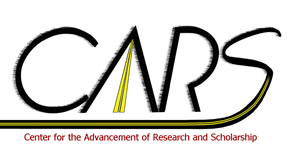Poster: Student-Faculty Partnerships: Rethinking Roles and Relationships
Location
Moakley Atrium
Start Time
13-5-2015 4:00 PM
End Time
13-5-2015 5:00 PM
Description
A collaborative model of faculty development with students as partners with faculty (Cook-Sather, Bovill & Felton, 2014) frames this study. Partnership is a flexible practice that positions students as pedagogical consultants and student consultants are viewed as active contributors and co-producers within the teaching–learning environment. In this qualitative study, the experiences of seven student consultants and three faculty engaged in five partnerships were explored. In several partnerships, professional counter spaces developed. Professional counter spaces are unique spaces, an intersection of the personal and academic that is more neutral and individual than either social spaces or academic spaces. Further, similar to Cook-Sather & Agu (2014) the student consultants developed their voices, and had the proverbial seat at the table with faculty. The experiences built their confidence and capacities as students, and faculty were faced with addressing issues of power within their classrooms.
Poster: Student-Faculty Partnerships: Rethinking Roles and Relationships
Moakley Atrium
A collaborative model of faculty development with students as partners with faculty (Cook-Sather, Bovill & Felton, 2014) frames this study. Partnership is a flexible practice that positions students as pedagogical consultants and student consultants are viewed as active contributors and co-producers within the teaching–learning environment. In this qualitative study, the experiences of seven student consultants and three faculty engaged in five partnerships were explored. In several partnerships, professional counter spaces developed. Professional counter spaces are unique spaces, an intersection of the personal and academic that is more neutral and individual than either social spaces or academic spaces. Further, similar to Cook-Sather & Agu (2014) the student consultants developed their voices, and had the proverbial seat at the table with faculty. The experiences built their confidence and capacities as students, and faculty were faced with addressing issues of power within their classrooms.
